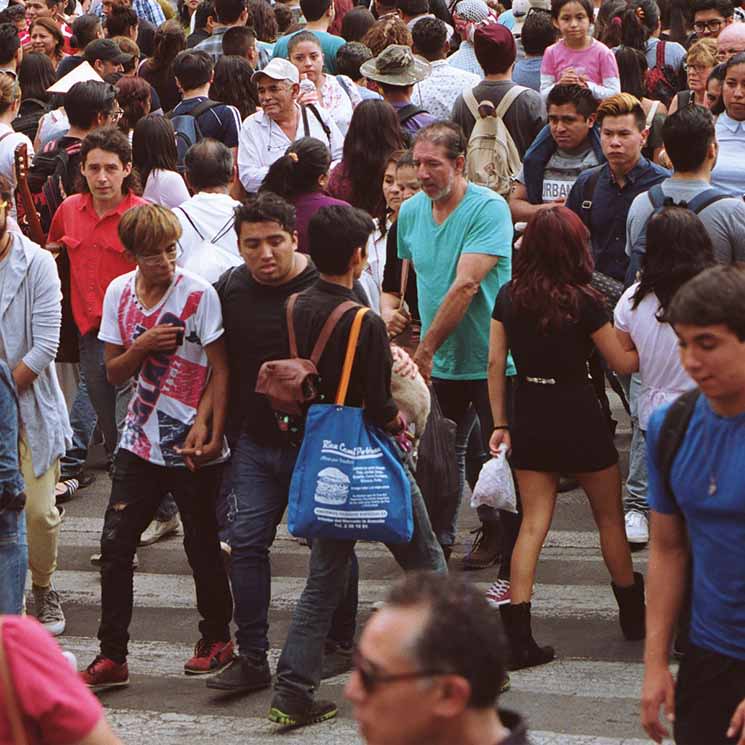Juan Wauters loves fruit — melons, mangoes, oranges, fans bring him bananas on tour. On La Onda de Juan Pablo, his first album since 2015 as well as the first all in Spanish, he takes himself and he peels, splitting himself into slices. He urges "Disfruta la Fruta" — "enjoy the fruit." But the translation doesn't rhyme; it doesn't let you loiter in the imperative's R's. This is important, because La Onda de Juan Pablo isn't just Wauters singing in Spanish, he lets the language dribble nectar down his chin.
Wauters, originally from Uruguay, had been living in NYC since 2002 and moved to Mexico City in 2017. He darted to Buenos Aires to shoot a movie, then meandered to Puerto Rico, Uruguay, Peru and Chile. He listened to the radio wherever he landed, inhaling each city's sound, then sought out local musicians. From a mobile studio Wauters had packed in two suitcases, they recorded fragments of La Onda together.
After stumbling alone through the opener's echoey limbo, Wauters beckons his companions to come dance with his grin. They bobble and giggle, brilliant ribbons swirling out of valises, shimmying, whistling, loving him dearly.
La Onda feels like time did in childhood summers, when a day had so many pockets for filling with each uniquely precious stick. Juan sings about waking up; he procures a pair of pants; he dances for a "guapa, linda, inteligente, hermosa" woman who, he explains, likes to eat. These are songs for running easy errands, wandering through markets, smelling heavy ripeness. They're outside-voice songs that need the air so that they can breathe.
"La onda" translates directly to "the wave," but means something more like a vibe. Juan Wauters' vibe is knowing now that an afternoon can be both luscious and temporary, like a fruit's dissolution on your tongue, like the citrus immensity of a someday return.
(Captured Tracks)Wauters, originally from Uruguay, had been living in NYC since 2002 and moved to Mexico City in 2017. He darted to Buenos Aires to shoot a movie, then meandered to Puerto Rico, Uruguay, Peru and Chile. He listened to the radio wherever he landed, inhaling each city's sound, then sought out local musicians. From a mobile studio Wauters had packed in two suitcases, they recorded fragments of La Onda together.
After stumbling alone through the opener's echoey limbo, Wauters beckons his companions to come dance with his grin. They bobble and giggle, brilliant ribbons swirling out of valises, shimmying, whistling, loving him dearly.
La Onda feels like time did in childhood summers, when a day had so many pockets for filling with each uniquely precious stick. Juan sings about waking up; he procures a pair of pants; he dances for a "guapa, linda, inteligente, hermosa" woman who, he explains, likes to eat. These are songs for running easy errands, wandering through markets, smelling heavy ripeness. They're outside-voice songs that need the air so that they can breathe.
"La onda" translates directly to "the wave," but means something more like a vibe. Juan Wauters' vibe is knowing now that an afternoon can be both luscious and temporary, like a fruit's dissolution on your tongue, like the citrus immensity of a someday return.
